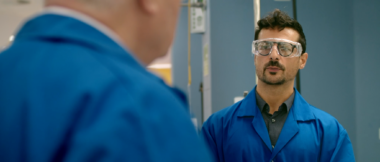On the 1st December, just prior to the COP28 Health Day on the 3rd December, representatives of the medical colleges for general practitioners (GPs), emergency doctors, rural and remote doctors, and surgeons, as well as other doctors and health professionals, gather at 8 am on the steps of Parliament House to call on the WA Government take urgent action on climate change and protect the health of Western Australians.
Reiterating calls from medical colleges earlier this year in support of ending fossil fuel expansion and climate action, those gathered today ask the WA government to:
-
End expansion of any new fossil fuel infrastructure and production
-
Phase out existing production and use of fossil fuels
-
Remove fossil fuel subsidies and invest in cheaper and cleaner renewable energy
-
Fast track the just transition away from fossil fuel energy.
Their asks align with the World Health Organizations calls for world leaders to not only meet existing commitments to climate action, but to raise ambition and accelerate the phase out of fossil fuels, including gas.
Gas is largely methane, a potent greenhouse gas, and if WA was a country, it would be the third largest gas producer in the world. Despite global efforts to reduce emissions, WA’s greenhouse gas emissions are rising - largely caused by the gas industry. The WA government also plans further gas expansion.
Gas itself is harmful to health. Health research recognises that using gas in our homes pollutes the air and harms our health. It is especially harmful to the health of children.
Climate change also threatens health and our health system. WA is highly vulnerable to this threat and our communities are already suffering the consequences of worsening heat, fires, and smoke.
Evidence shows us that in WA ambulance callouts are higher on high heat days. Our emergency departments also face increased presentations including heat-related illnesses, respiratory diseases (such as asthma and COPD exacerbations), cardiovascular events (including heart attack and stroke), and mental health conditions. This will only increase as we face worsening climate change, placing additional burden on an already ailing public health system.
Acting on climate change and transitioning rapidly to renewable energy will not only reduce the state’s contribution to dangerous climate change, but will also yield health benefits on a local and global level. Cleaner air will reduce rates of strokes, heart attacks, and respiratory diseases. Phasing out gas from the home will also decrease rates of asthma, particularly among children.
We commend the WA government for commissioning the Climate Health WA Inquiry (the Inquiry) in 2019-2020. A key finding of this Inquiry was that 2020-2030 is the critical decade to address irreversible climate risk. To ensure the sustainability of our health system, we call on the government to urgently enact all recommendations of this Inquiry. This includes preparing the health sector, workforce, and community to meet the climate change related health challenges.
This week, just after unprecedented November heat for Perth, and in the wake of the devastating fires North of Perth, the WA Climate Change Bill was tabled in Parliament without the mention of 2030 emission targets.
The WA Government needs to listen to the health voice, take heed of the warnings in the Inquiry, and align actions with the principles of the Public Health Act WA. We must commit to setting ambitious 2030 and interim science based emissions reduction targets to protect the health and wellbeing of WA citizens.
Statement from Dr Tim Leahy, spokesperson for Doctors for the Environment Australia (DEA):
“We have just endured a record heatwave for November with Summer still to come. Emergency departments, hospitals, and GP practices are already seeing the impacts first hand. Concerningly, two thirds of young Australians are now recognised as having their mental health negatively impacted by climate change and government inaction is reported as being the most important factor.
“Gas extraction in WA will only drive further global warming. For the sake of our children’s health and to safeguard their future, we must act urgently.
‘We ask the government to prioritize the health and wellbeing of communities, especially those most impacted by climate change. The WA government needs to stop adding fuel to the fire, stop new gas projects, and contain the escalating health crisis.”
Statement from the Royal Australian College of General Practitioners (RACGP), WA:
“Climate change is a public health emergency. GPs in WA and across Australia are already seeing the impacts of climate change on our patients, including from more extreme bushfires, heatwaves, droughts, and storms, which affect both physical and mental health.
“We need urgent action from all levels of government to safeguard our communities from the climate crisis.”
Statement from Dr Dan Halliday, President of the Australian College of Rural and Remote Medicine (ACRRM):
”The impacts of climate change have created a global health emergency, and its effects are particularly serious in rural and remote communities. To protect our communities from potentially catastrophic climate change, our governments need to commit to policies that can provide a just transition to lower carbon emissions.”
Statement from Professor David Fletcher, spokesperson from the Royal Australasian College of Surgeons (RACS):
“RACS Urges Equitable Shift to Sustainable Energy for Health.
“Climate change is already having widespread impacts on human health. As frontline health workers, Surgeons are increasingly responding to health emergencies triggered by the climate crisis. Yet in the face of increasing harm and suffering, new fossil fuel resources continue to be developed and greenhouse gas emissions continue to rise.
“If we are to have any chance of limiting warming to 1.5°C and halting the escalation of the climate health emergency, we must end the proliferation of fossil fuels.”
Statement from Dr Elizabeth Connor, President of the Public Health Association Australia (PHAA), WA branch:
“Climate change is a public health emergency and action to ensure a safe climate and a just, equitable, and ecologically sustainable society is a critical and urgent public health priority.
“Immediate interventions to mitigate climate change by decreasing greenhouse gas emissions and supporting decreased reliance on fossil fuels are essential. Simultaneously, we need to see true commitment and action on the targets identified in the WA Climate Adaptation Strategy 2023 to ensure the health of the WA community is protected against the climate impacts already upon us. Government must act now to address climate change.”
ENDS
Contact details:
DEA WA Media Liaison - Dr James Anderson [email protected], +61 403 926 510
DEA Media and Communications Lead - Carmela Ferraro + 61 0410 703 074


